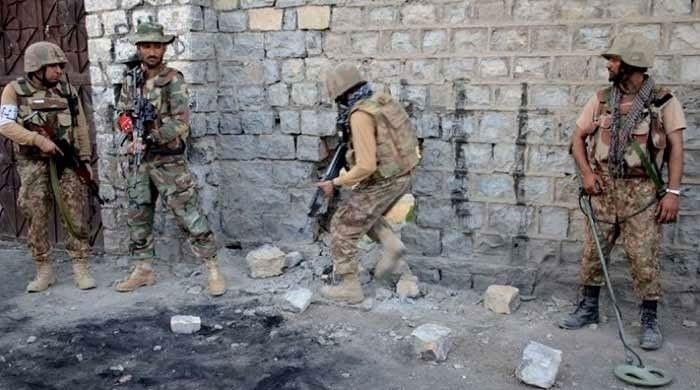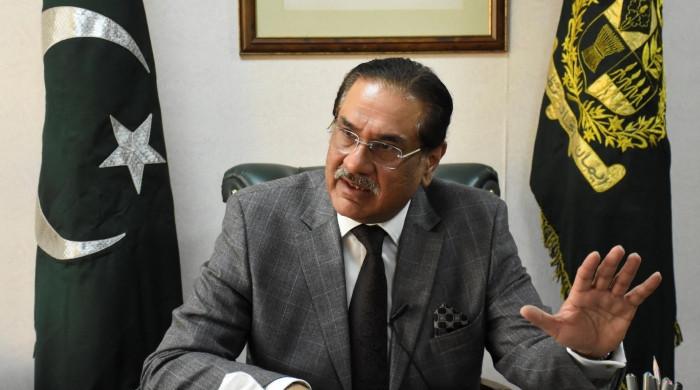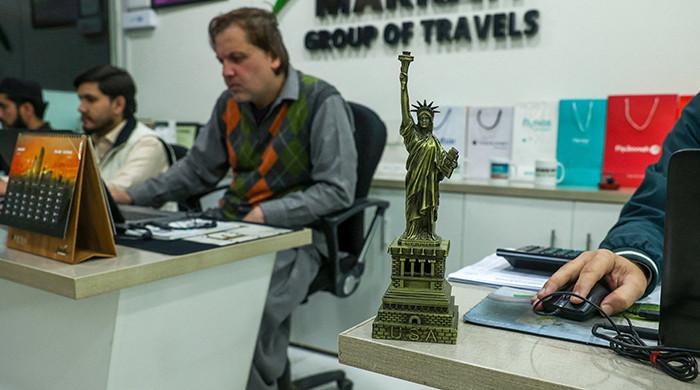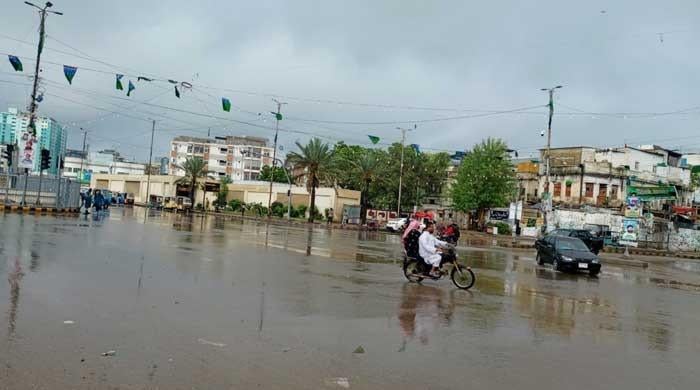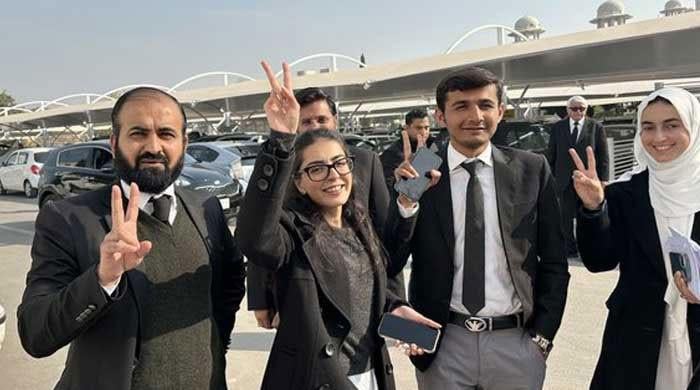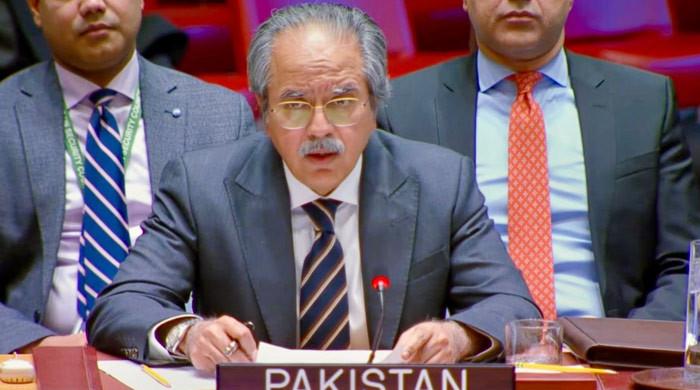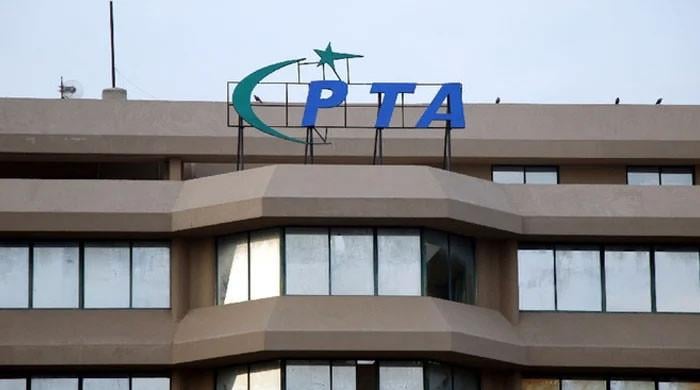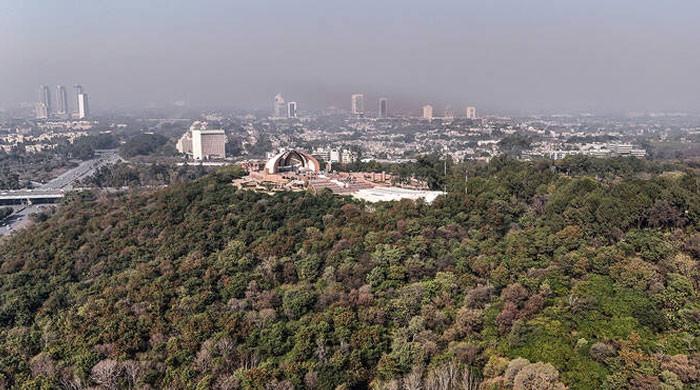CJP says judiciary committed to constitutionalism, rule of law and democracy
CJP says accountability process must not lose credibility, vows judiciary's commitment to playing role as per constitution
September 11, 2019
ISLAMABAD: Chief Justice of Pakistan Justice Asif Saeed Khosa has said that the judiciary is committed to playing its role as per the law and the constitution.
Addressing a ceremony at the Supreme Court building here on Wednesday, he said efforts are afoot to reduce the burden of pending cases.
The chief justice said that the Supreme Judicial Council (SJC) is mandated by the constitution to inquire into the conduct of judges of the superior judiciary. He said that the job in this regard is unpleasant but a constitutional duty that they cannot refuse to perform. He said the Constitution empowers the president to direct the council to inquire into the conduct of a judge and the council cannot disregard such a constitutionally mandated direction and it must inquire as directed.
He said that such a direction to inquire does not and cannot control the opinion to be formed by the council after inquiring into the matter.
"I may take this opportunity to inform you in the broadest terms that the complaints/information received by the council from the general public are mostly about some observations made or conduct displayed by a judge during the course of hearing of a case or in respect of a decision which has gone against a party," he said.
The CJP said most of such complaints are frivolous or a result of frustration on losing a case.
In such cases, ordinarily, the nature of the allegations leveled against the judge or the proceedings undertaken by the council are not shared with the public at large primarily to protect the prestige, honour and dignity of the concerned judge as well as the image of the judiciary as institution.
Referring to the references against Justice Qazi Faez Isa and Sindh High Court (SHC) judge Justice KK Agha, he said the council's proceedings had been halted because the matter was pending before the Supreme Court on its judicial side.
Discussing the suo moto jurisdiction, the chief justice said the contentious issues raised and discussed by the legal community and the civil society for some time is fixing of parameters and procedure for suo motu exercise of the court's jurisdiction under Article 184(3) of the constitution.
"The scope of this court's jurisdiction under the said Article of the Constitution is a matter of judicial interpretation and a plethora of case-law already exists on the subject but suo motu initiation of proceedings under that Article of the Constitution is a matter of procedure and the same is yet to be conclusively determined," he said.
Bench fully committed to democracy
The chief justice further spoke about the court during previous judicial years.
"In the last judicial year, Chief Justice Mian Saqib Nisar and Justice Sh Azmat Saeed laid down the robes of their offices while Justice Qazi Muhammad Amin Ahmed was appointed as a Judge of this Court. Qazi Sahib's appointment has added value to this Court. Sheikh Sahib's expertise shall be missed by the Court for a long time.
"During Mian Sahib's tenure as the chief justice, this court had decided many cases of great significance. It has indeed been difficult for me to fit into his big shoes," he said.
He underscored the importance and significance of the role of the Bar in the administration of justice.
"The Bar has always extended its full cooperation and support to the causes of justice espoused by this court. Many senior members of the Bar of this court are legends in their lifetime, some of those in their middle ages are heroes and leaders of the profession besides being experts in the professional field.
"There are, however, some elements in the legal profession, forming a very small minority, who sometimes bring bad name to the noble profession but we expect that serious and effective steps shall be taken by the disciplinary bodies of the Bar to punish such elements and to curb their nefarious activities," he said.
"Let me utilise this opportunity to make it very clear that the Bench and the Bar stand fully committed to constitutionalism, rule of law and democracy and any attempt made from any quarter to destroy or damage these ideals and principles or to build inroads into them shall be resisted by the Bench and the Bar together with fullest might.
"In recent times, the leadership of the Bar has repeatedly voiced its concerns over receding political space in governance of the State and such concerns must not be ignored.
"As an important and independent organ of the state responsible for safeguarding the constitutional ethos of the country, we feel that such loss of political space in governance of the state may not augur well for the future of the country as a constitutional democracy," he said.
Process of accountability must not lose credibility
"We, as a relevant organ of the state, also feel that the growing perception that the process of accountability being pursued in the country at present is lopsided and is a part of political engineering is a dangerous perception and some remedial steps need to be taken urgently so that the process does not lose credibility," he said.
Speaking further about the process of accountability, he said: "Recovery of stolen wealth of the citizenry is a noble cause and it must be legitimately and legally pursued where it is due, but if in the process the constitutional and legal morality of the society and the recognised standards of fairness and impartiality are compromised, then retrieval of the lost constitutional and legal morality may pose an even bigger challenge to the society at large in the days to come."
The chief justice also spoke about the suppression of dissent and the media.
"Voices being raised about muzzling of the print and electronic media and suppression of dissent are also disturbing. It must be appreciated by all concerned that a voice suppressed or an opinion curbed generates frustration, frustration gives rise to discontent, and increasing discontent poses a serious threat to the democratic system itself. Constitutionally guaranteed rights of citizens ought never to be compromised for the sake of short-term political or governance advantages," he said.
"Democracy requires a long-term approach and tolerance for dissent and without that the system plunges into authoritarianism and we have witnessed plenty of it in the past with disastrous consequences," he added.
The chief justice also mentioned his suggestion of "an inter-institutional dialogue for sorting out irritants within the organs and institutions of the state", which he said was never considered, and "the serious issue of the missing persons also still haunts us all".
He hoped that the executive and the legislature would give their attention to all such pressing issues.




